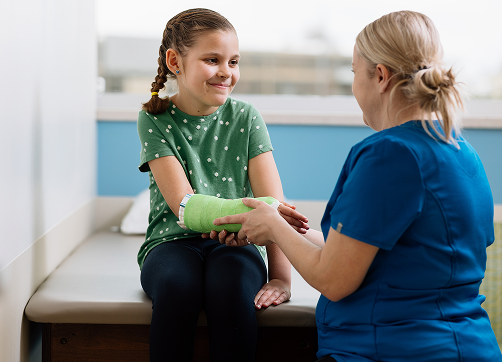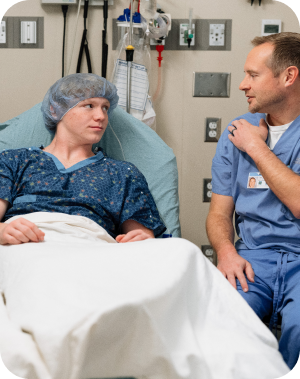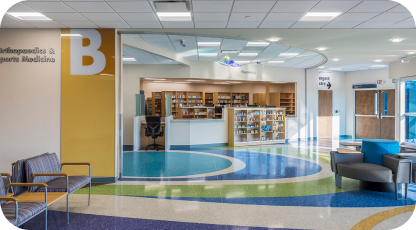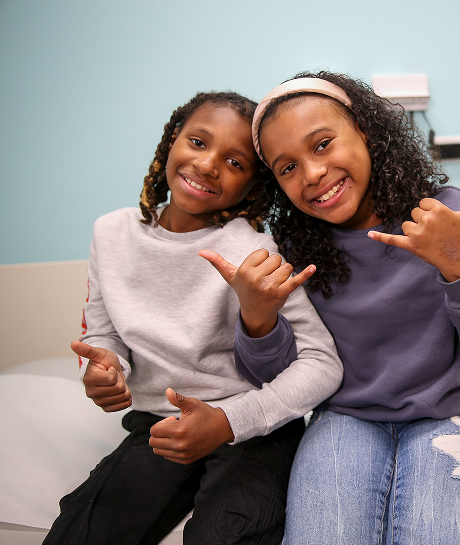pediatric cancer research


overview
Sixty years ago, children diagnosed with leukemia had only a slim chance of survival. Today, the survival rate for childhood leukemia is 96-98 percent. What accounts for this dramatic improvement? To a large extent, the answer is clinical research.
Clinical research studies, or “trials,” are designed to help scientists evaluate specific treatment plans. These trials are sponsored by different hospitals, companies and government agencies, and made available to patients who fit certain criteria. At Dayton Children’s, we strongly encourage families to consider participating in clinical research. We know that the therapies children receive through these studies may benefit them today—and countless children in years to come.
Children’s Oncology Group
Dayton Children’s is part of the Children’s Oncology Group (COG), the world’s largest organization devoted exclusively to pediatric cancer research. More than 250 hospitals around the world participate in COG. Our partnership with COG allows us to offer our patients the same Phase 2, 3 and 4 trials that are available at large academic medical centers. These types of trials evaluate the effectiveness and safety of therapies that have been previously tested.

The Children’s Brain Tumor Tissue Consortium
Dayton Children’s partners with 16 leading pediatric brain cancer clinicians, researchers and institutions, including Children’s Hospital of Philadelphia and Stanford University, for cutting edge scientific innovation and collaboration as part of The Children’s Brain Tumor Tissue Consortium.
Living Biobank
Dayton Children’s is home to the Living Biobank, where tumor samples are collected, tested and grown at Dayton Children’s, then shared with researchers all over the world. The goal is to improve treatment for children with brain tumors, both by curing more patients and by reducing side effects of treatment. To learn more about how Dayton Children’s is doing their part to cure pediatric brain cancer, visit The Living Biobank at Dayton Children’s.
what is the purpose of pediatric research?
The purpose of pediatric research is to make new discoveries that will improve the lives of children who have diseases such as cancer, sickle cell anemia and hemophilia. Some studies focus on curing disease or preventing recurrence, others on minimizing side effects or long-term effects of treatment.
how do I find out what research studies are available?
Dayton Children’s offers many research studies for pediatric cancer and blood diseases, and each one has specific eligibility criteria. For example, some studies are for children with a certain type of cancer, or for siblings who have sickle cell anemia, or for children whose cancer has returned. Your doctor will talk to you about what studies are available to your child and explain what each one would involve. All children who are eligible for a research study are given an opportunity to participate, but participation is voluntary.
how do I enroll my child in a study?
If you decide to enroll your child in a study, our team will explain what the study will involve and help you complete any necessary paperwork. Our care team will communicate with your insurance company and ask for preapproval, if necessary. Most care related to the research study will take place at Dayton Children’s.

here when you need us
Whether you’re looking for the right provider, ready to make an appointment, or need care right now—we’re here to help you take the next step with confidence
